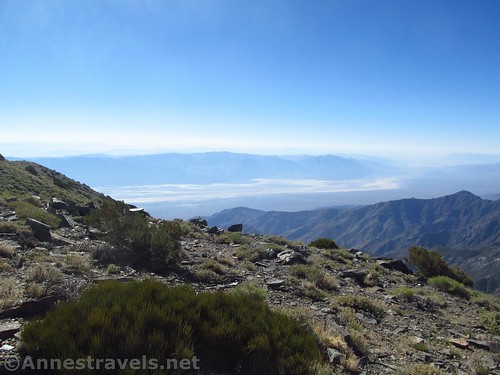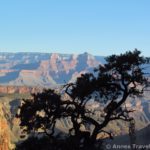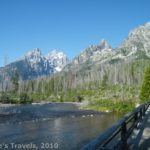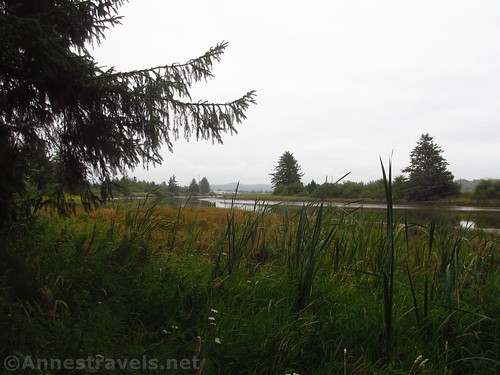
Misty morning along the Netul Landing Trail, Oregon
“A lot of people flunk out in the wilderness, because they don’t keep their eyes on the end… The test of the wilderness is the purification of your motives and your heart.” – DS
The Bible talks quite a bit about enduring, about keeping our eyes on the prize. We are called in Christ not only to say the sinner’s prayer, but also to continue in the faith, for example, “We have become partakers of Christ, if we hold fast the beginning of our assurance firm until the end.” (Hebrews 3:14)
When we are in the wilderness – both figuratively or physically – keeping our eyes on the end, the prize, is directly related to our success. In the physical wilderness, we are putting ourselves through the pain of climbing 4,000ft. of elevation in 4.5 miles because we know at the top of the mountain there is a view that will take our breath away. When the rocks are sliding out from under our feet on the shortest rim-to-river route – not even a trail – in the Grand Canyon, and I see one of my 11 year old group members accidentally using a larger rock as a surfboard careening down the chute toward the Colorado River, it’s the prize of actually making it to the bottom that keeps panic at bay (she was fine, by the way, and had a lot more fun than the rest of us getting down that chute!)
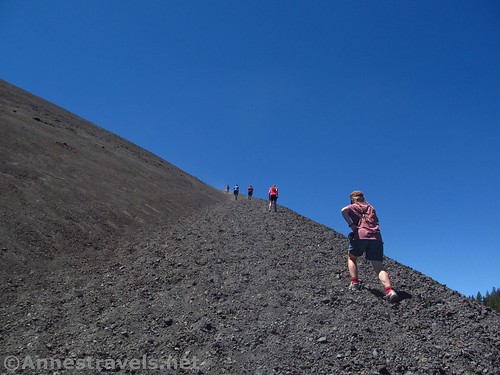
It takes a pretty good prize to climb as trail as difficult as the Cinder Cone in Lassen Volcanic National Park, California
In the figurative sense of the wilderness, the prize is often more elusive. The ultimate prize is Jesus – we all know that – and keeping our eyes on that prize through everything is extremely important. But along the way, there are other prizes: promises that God has given us, hopes and dreams, things we want to see happen.
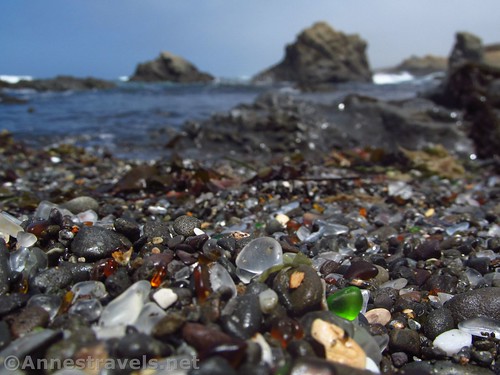
Sea glass at Glass Beach, California
In the figurative wilderness, the times of dryness in our lives, keeping our eyes on the prize can be the reason we ever make it through to the end. “You need to persevere so that when you have done the will of God, you will receive what he has promised.” (Hebrews 10:36)
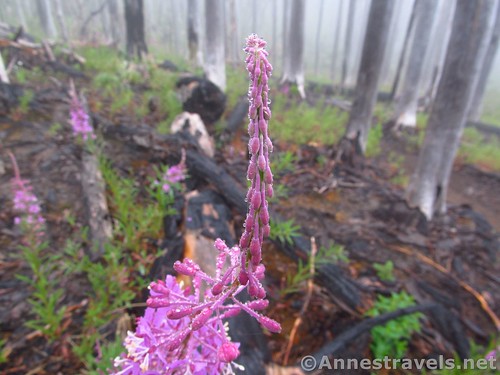
Hope deferred: the prize on this trail wasn’t what I hoped for, but the wildflowers were great
Flunking the wilderness (figuratively or physically) is a real possibility. There is so much to be learned, so much to distract us: a difficult river to cross, a hard trail to climb, the beautiful wildflowers that catch our attention, trails that seem they would get us quicker to our destination.
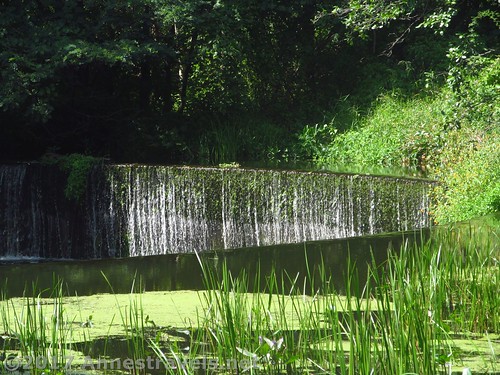
Beauty in a stagnant mill pond, Chester, New Jersey
The wilderness purifies us by teaching us what is really important – stripping us down to who we really are. Our hearts and motives are often laid bare, the good, the bad, and he ugly. This is true in both the physical and figurative sense of wilderness. Hearts are revealed in the wilderness.
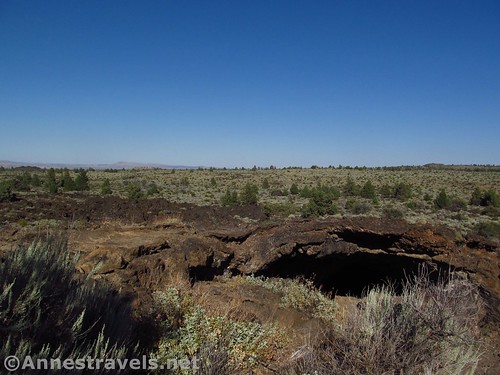
Cave entrance in Lava Beds National Monument, California
Often, it’s how we react to revelation that determines how we exit the wilderness, and whether we flunk or come through with flying colors. For example, if someone goes out in the wilderness (physically) and finds themselves completely helpless, they can choose two (or more) reactions: 1) to never go out in the wilderness again (in effect, to refuse to accept the reality and to give up any benefit that might come from accepting that reality), or 2) to accept their own miniscule significance and helplessness (and from there to rely on God for strength and help and learn how to live in this new environment).
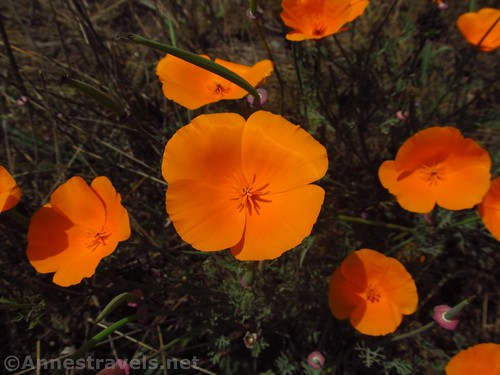
California Poppies near Glass Beach, California
Put that way, it’s easy for us to say we want to choose the second reaction. But in the realities and wildernesses of life, it’s not always that obvious.
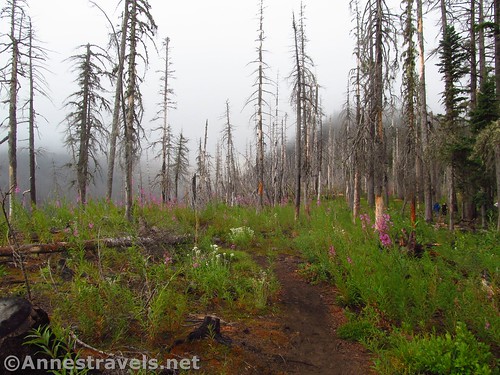
Mazama Trail, heading for views of Mt. Hood, Oregon
In the end, we can always choose God. When the thunderstorm is eclipsing the sun and we’re near the top of a 14K peak, we can choose God: Lord, what should I do now!?! When someone is ridiculing our life choices, we can choose God: Lord, I know You called me to this; or, Lord, how do You see this person who is mocking me? When the rest of the group is tired and it becomes obvious we can’t reach the prize we hoped for, God, how can I love them with a pure heart? When we are so tired and the spouse asks us to do the dishes, God, give me a pure heart…
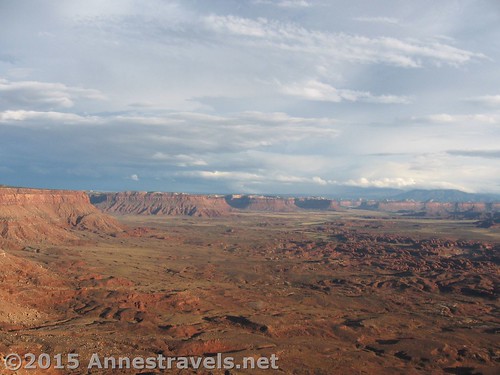
Views toward the Needles of Canyonlands from Canyon Rims Recreation Area, Utah
“I press on to take hold of that for which Christ Jesus took hold for me… I do not consider myself yet to have taken hold of it. But one thing I do: Forgetting what is behind and straining toward what is ahead, I press on toward the goal to win the prize for which God has called me.” (Philippians 3:13-14)

